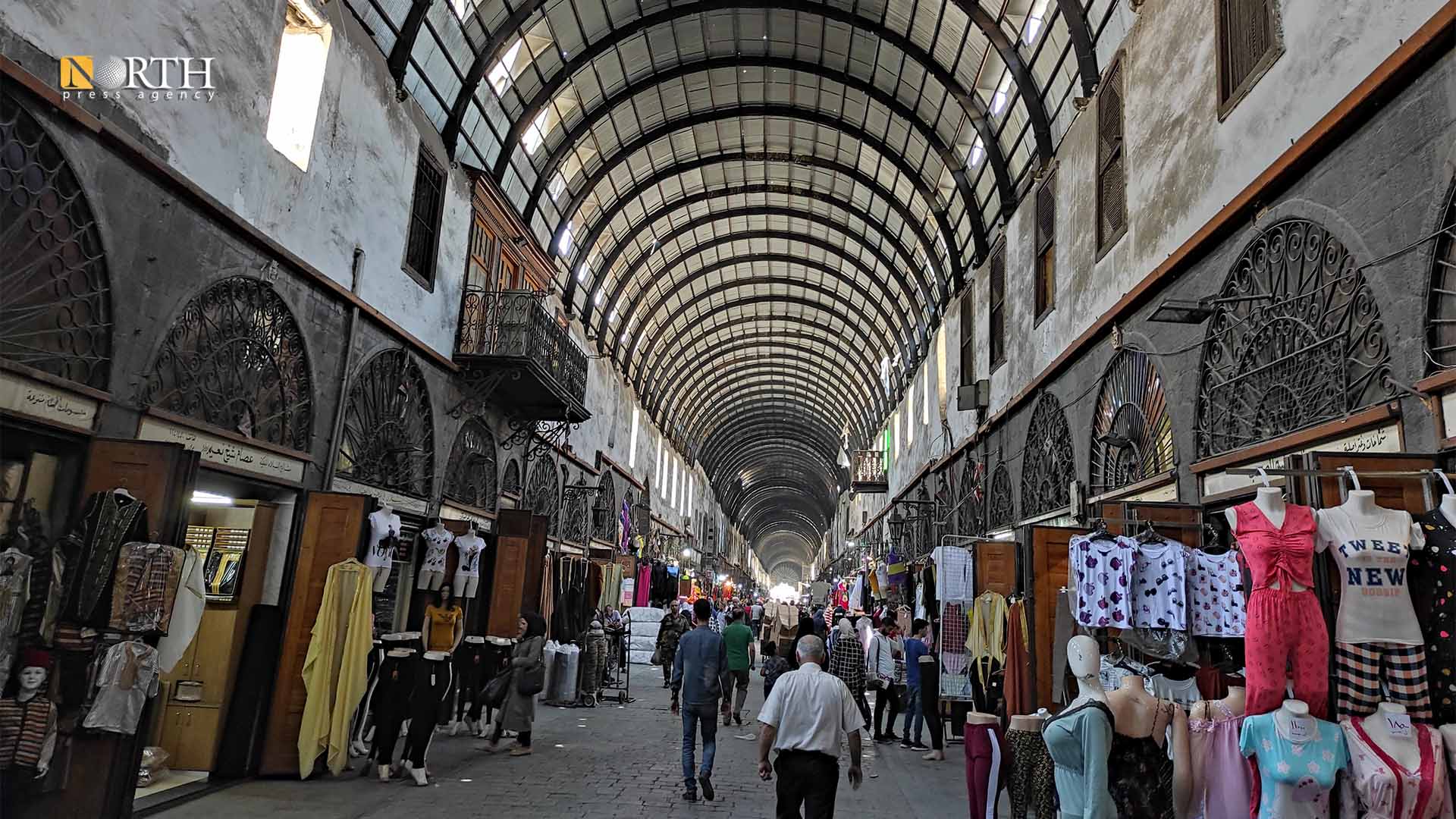Power outages push workshops in Syria’s Damascus to close
DAMASCUS, Syria (North Press) – Ahmed Hadi could not continue working and closed his shop after power cutoffs continued for more than ten hours in his neighborhood, al-Sheikh Sa’d in al-Mazza area in the Syrian capital, Damascus.
The hours of electricity in Damascus and other government-held areas has declined, as rationing hours reached more than ten hours in some areas of Damascus and its suburbs.
Residents of the villages of Rif-Dimashq said that they receive electricity only two hours a day.
Hadi works at a sewing workshop with five other workers, who have been jobless and with no source of income for a week.
“Our job depends on electricity and it is unavailable; a lot of unpaid work has piled up,” Hadi told North Press.
On June 27, Syrian Minister of Electricity Ghassan al-Zamil told a local radio station that high temperatures caused increased rationing hours.
The decrease in gas imports for power stations and high temperatures caused some of these stations to go out of service, according to al-Zamil.
Stations that are out of service need maintenance that take months due to high costs of maintenance and unavailability of spare parts. In addition, the improvement of electricity is linked with the increase of gas quantities imported to the stations, al-Zamil pointed out.
Financial losses
Hadi incurred a large financial loss due to his failure to make any profit for a week, in addition to paying wages for his workers.
“If I depend on generators, I need gasoline to operate them for more than eight hours per day; this in return will lead to the increase of my prices to avoid any loss,” he added.
On Thursday, al-Zamil told the pro-government al-Watan newspaper that “the electricity situation will witness a remarkable improvement during the upcoming hours.”
However, this did not happen. According to local people, as the rationing system is still stable; an hour and a half on and five hours off.
Maintenance works are continuing after securing the required finances, al-Zamil added.
However, a source from the Directorate of Electricity of Damascus said that what al-Zamil said “does not go beyond being media statements to pacify the residents because of the current rationing system.”
The source added that the electricity problem is not limited to the lack of fuel, but is partly due to the destruction of the infrastructure of most of the networks in various regions of the country.
Samir al-Hassan, the owner of a sweets and ice cream shop in Damascus, will either have to close his shop or raise the prices of goods as a result of operating generators to avoid damaging the goods.
Hardships
On June 30, the head of the Sweets and Ice Cream Association in Damascus, Muhammad al-Imam, said, “10 ice cream shops were closed due to the continuous power cuts so that their owners would not suffer a greater loss.”
“If the electrical situation continues, many workers will be dismissed in the field of ice cream, because many ice cream shops can no longer bear losses,” he added.
He pointed out that a number of difficulties hindered the work of ice cream shops, despite the fact that the summer season was a season of work and profit for them.
Among these difficulties is the lack of fuel, despite its availability in the black market at a price of 2,400 Syrian pounds (SYP), according to Imam.
He asked some shop owners not to bring milk to their stores because of the lack of gas to prepare it.
He mentioned that the fuel company does not secure fuel, but it is available in the market at double the standard price, asking: “Where does it come from, for example?! There is no organized and clear mechanism for distributing the substance.”
Though Syrian law prohibits unofficial trading in oil products in any way, the sale of fuel is widespread in the black market at prices that are many times the official ones.
Al-Hassan’s losses exceeded one million SYP in a week, as most residents who buy ice cream stopped doing so “because it became liquid as a result of the lack of electricity for more than an hour and a half.”
Al-Hassan added that if the electricity situation continues, he will close his shop to avoid losses.

